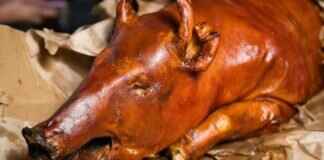In this article, we will delve into the comfort and practicality of neck phone holders for extended use. We will examine their design, benefits, drawbacks, and user experiences to help you make an informed decision.
Understanding Neck Phone Holders
Neck phone holders are innovative accessories designed to provide hands-free convenience. They allow users to keep their devices accessible while reducing strain on their hands and necks during prolonged use.
Benefits of Using Neck Phone Holders
- Hands-Free Operation: One of the primary benefits is the ability to multitask effectively. Users can engage in activities like cooking or working while keeping their phones within reach.
- Reduced Muscle Strain: These holders alleviate tension in the hands, wrists, and neck, promoting a more ergonomic posture during device use.
- Increased Accessibility: Neck phone holders make it easier to watch videos or participate in video calls without the discomfort of holding the device for long periods.
Potential Drawbacks of Neck Phone Holders
- Discomfort Over Time: Some users report discomfort after extended use, particularly due to the weight of the device and holder.
- Limited Compatibility: Not all neck phone holders fit every phone model, which can limit options for users.
- Durability Issues: Some models may not withstand long-term use, leading to concerns about their longevity.
User Experiences and Reviews
- Positive Feedback: Many users appreciate the convenience and ergonomic design, noting improvements in daily activities.
- Negative Feedback: Conversely, some users express dissatisfaction, citing discomfort and instability in certain models.
Choosing the Right Neck Phone Holder
When selecting a neck phone holder, consider:
- Design Features: Look for flexibility, weight distribution, and ease of use.
- Material Quality: High-quality materials ensure durability and comfort.
Conclusion: Are Neck Phone Holders Worth It?
In conclusion, neck phone holders offer a mix of benefits and drawbacks. While they enhance convenience and reduce strain, potential discomfort and compatibility issues should be considered before making a purchase decision.

Understanding Neck Phone Holders
Neck phone holders are innovative accessories designed to provide hands-free convenience for smartphone users. These devices allow individuals to keep their phones accessible at all times, significantly reducing the strain on their hands and necks during prolonged usage. As we delve deeper into the world of neck phone holders, we will uncover their design, functionality, and the various benefits they offer.
These holders typically consist of a flexible neckband that cradles the device securely, allowing users to engage in various activities without having to hold their phones. This design is particularly useful for multitasking, enabling users to perform tasks like cooking, exercising, or even working while keeping their devices within easy reach.
Key Features of Neck Phone Holders
- Hands-Free Operation: Users can easily access their devices without using their hands, which is ideal for activities that require both hands.
- Adjustable Design: Many models come with adjustable features, allowing users to customize the fit according to their comfort levels.
- Lightweight Materials: Most neck phone holders are made from lightweight materials, ensuring that they don’t add significant weight around the neck.
Benefits of Neck Phone Holders
Utilizing a neck phone holder can lead to numerous advantages:
- Increased Accessibility: Keeping the phone within reach allows for quick responses to messages and calls.
- Ergonomic Support: These holders promote better posture by allowing users to maintain a comfortable position while using their devices.
- Enhanced Multimedia Experience: Whether watching movies or participating in video calls, neck phone holders provide a more enjoyable experience.
Conclusion
In summary, neck phone holders are practical tools that can enhance the overall experience of smartphone usage. By providing hands-free convenience and reducing physical strain, they cater to a wide range of activities and preferences. As with any accessory, it’s essential to consider individual needs and preferences when selecting the right model.

Benefits of Using Neck Phone Holders
Neck phone holders have gained popularity as essential accessories for smartphone users. They offer a variety of benefits that enhance the overall experience of using mobile devices, particularly during extended periods. Here, we delve into the advantages that make neck phone holders a worthwhile investment.
- Hands-Free Operation: One of the most significant advantages of neck phone holders is their ability to provide hands-free operation. Users can easily engage in other activities, whether cooking, exercising, or working, without the hassle of holding their devices. This feature is particularly beneficial for multitaskers.
- Reduced Muscle Strain: Prolonged use of smartphones can lead to discomfort and strain in the hands, wrists, and neck. Neck phone holders help alleviate this issue by distributing the weight of the device evenly, allowing users to maintain a more ergonomic posture during use.
- Increased Accessibility: With a neck phone holder, your device is always within reach. This increased accessibility is particularly useful for video calls and streaming, as users can easily glance at their screens without having to hold the phone up.
- Enhanced Productivity: The ability to keep your hands free allows for better focus on tasks at hand. Whether you’re in a meeting or working on a project, neck phone holders can help streamline your workflow and improve overall productivity.
- Ideal for Multimedia Consumption: Watching movies, playing games, or participating in video calls becomes much more enjoyable with neck phone holders. Users can comfortably view their screens without experiencing fatigue from holding their devices for extended periods.
In summary, the benefits of using neck phone holders extend beyond mere convenience. They provide significant advantages such as hands-free operation, reduced muscle strain, and increased accessibility, making them an appealing choice for a wide range of activities. As you consider incorporating a neck phone holder into your daily routine, keep these benefits in mind to enhance your smartphone experience.
Hands-Free Convenience
is one of the standout features of neck phone holders, making them increasingly popular among users. These innovative devices allow individuals to engage in various activities without the constant need to hold their phones, enhancing overall productivity and comfort.
Imagine cooking a meal while following a recipe video, or working on a project while attending a video call. With a neck phone holder, your device remains securely in place, allowing you to focus on your tasks without interruption. This hands-free functionality is particularly beneficial in our fast-paced world, where multitasking has become essential.
Moreover, neck phone holders are designed to keep your device at eye level, reducing the strain that comes from looking down at your phone for extended periods. This ergonomic advantage not only enhances comfort but also promotes better posture, which is crucial for long-term health. By eliminating the need to grip your phone, these holders help prevent discomfort in your hands and wrists, making them ideal for extended use.
Another significant advantage is the accessibility they provide. Whether you are in the middle of a workout or simply relaxing at home, having your phone within reach yet out of your hands allows for seamless interaction with your device. You can easily check notifications, respond to messages, or change your playlist without the hassle of holding your phone.
In summary, the offered by neck phone holders enhances daily activities, making them a valuable accessory for anyone looking to improve their multitasking capabilities. By integrating this simple yet effective tool into your routine, you can experience a more efficient and comfortable way to manage your device usage.
Enhanced Productivity
In today’s fast-paced world, maintaining high levels of productivity is essential, especially for professionals who are constantly on the move. One innovative solution that has gained popularity is the use of neck phone holders. These accessories allow users to manage tasks hands-free, facilitating a more efficient workflow. Below, we explore how neck phone holders can significantly enhance productivity.
| Feature | Benefit |
|---|---|
| Hands-Free Operation | Allows multitasking without the need to hold devices, making it easier to engage in various activities simultaneously. |
| Accessibility | Keeps phones within reach, enabling quick responses to messages or calls without interrupting ongoing tasks. |
| Ergonomic Design | Reduces physical strain on the hands and neck, contributing to longer periods of comfortable use. |
- Multitasking Made Easy: Whether cooking, exercising, or working, users can keep their phones accessible for notifications and calls.
- Ideal for Remote Work: With the rise of remote work, neck phone holders allow for seamless video calls and meetings while keeping the device secure.
- Enhanced Focus: By eliminating the need to hold a phone, users can concentrate better on tasks at hand, leading to improved outcomes.
Moreover, neck phone holders can be particularly beneficial for those engaged in creative tasks, as they allow for hands-free interaction with devices while sketching, writing, or brainstorming ideas. This hands-free functionality not only promotes creativity but also encourages a more dynamic approach to work and productivity.
In conclusion, neck phone holders are more than just a convenience; they are a practical tool that can significantly enhance productivity. By allowing users to manage their tasks effectively without the physical burden of holding a device, they pave the way for a more efficient and enjoyable work experience.
Ideal for Multimedia Consumption
Neck phone holders have emerged as a game-changer for those who enjoy multimedia consumption. Whether you are watching movies, playing games, or participating in video calls, these innovative devices provide a level of comfort and accessibility that traditional holding methods simply cannot match. The ergonomic design of neck phone holders allows users to enjoy their favorite content without the discomfort that often accompanies prolonged device usage.
One of the standout features of neck phone holders is their ability to free up your hands. This hands-free convenience means you can engage in other activities, such as cooking or exercising, while still keeping your device within easy reach. Imagine being able to follow a cooking tutorial or chat with friends on a video call without having to hold your phone. This functionality not only enhances your experience but also allows for a more immersive engagement with the content you are consuming.
Moreover, neck phone holders are designed to accommodate various media formats. Users can seamlessly switch between streaming services, gaming apps, and video conferencing platforms without missing a beat. The adjustable features of many neck holders ensure that your device is positioned at the perfect angle, reducing neck strain and allowing for extended viewing periods.
However, it is essential to consider the potential drawbacks. Some users have reported discomfort after prolonged usage, particularly if the holder is not well-designed or if the device is too heavy. Therefore, it is crucial to choose a model that balances weight distribution with comfort.
In conclusion, neck phone holders are particularly ideal for multimedia consumption, providing a unique blend of comfort and convenience. By allowing users to engage with their devices hands-free, they enhance the overall experience, making long sessions of entertainment or communication more enjoyable.
Reduced Physical Strain
is a crucial advantage of using neck phone holders. These innovative accessories are designed to provide users with a hands-free experience, significantly benefiting those who spend prolonged periods on their devices.
The ergonomic design of neck phone holders is tailored to alleviate discomfort associated with traditional phone usage. When holding a phone for extended periods, users often experience tension in the hands, wrists, and neck. This tension can lead to muscle fatigue and even chronic pain over time. By utilizing a neck phone holder, these issues can be minimized, allowing for a more relaxed posture.
One of the primary reasons neck phone holders promote a healthier posture is their ability to keep the device at eye level. This positioning encourages users to maintain a straight neck and back, reducing the tendency to hunch over. In turn, this helps prevent the development of conditions such as tech neck, which is becoming increasingly common in our digital age.
Furthermore, neck phone holders are especially beneficial for activities that require multitasking. For example, whether you’re cooking, exercising, or working, having your phone securely positioned allows you to engage in these activities without straining your body. Users have reported feeling less fatigued and more productive when using these holders, as they can focus on their tasks rather than adjusting their posture frequently.
However, it’s important to note that not all neck phone holders are created equal. Some may still cause discomfort if they are poorly designed or too heavy. Therefore, choosing a model that balances weight and comfort is essential for maximizing the ergonomic benefits.
In conclusion, the use of neck phone holders can significantly reduce physical strain associated with prolonged device usage. By promoting better posture and allowing for hands-free operation, they serve as a valuable tool for enhancing comfort and productivity in our increasingly mobile world.

Potential Drawbacks of Neck Phone Holders
While neck phone holders offer several benefits, it is essential to consider their potential drawbacks before making a purchase. Understanding these limitations can help users make informed decisions regarding their use.
- Discomfort from Prolonged Use: One of the most common complaints among users is the discomfort experienced after extended use of neck phone holders. The weight of both the phone and the holder can create neck fatigue and irritation. This discomfort can be particularly pronounced during long sessions, making it crucial for users to take breaks and adjust their posture regularly.
- Limited Compatibility: Not all neck phone holders are designed to accommodate every smartphone model. Users may find it challenging to locate a holder that securely fits their specific device, which can limit their options. This lack of compatibility can lead to frustration and may deter potential buyers from investing in these accessories.
- Potential Durability Issues: The durability of neck phone holders can vary significantly between models. Some may be constructed from lower-quality materials that wear out quickly or fail to support the weight of the device effectively. Users should consider the material and build quality when selecting a holder to ensure it can withstand regular use.
- Adjustment Challenges: Some neck phone holders require frequent adjustments to maintain comfort and stability. Users may find themselves constantly readjusting the holder to achieve the desired angle or position, which can be frustrating and detract from the overall user experience.
- Style and Aesthetics: While functionality is essential, some users may be concerned about the style and aesthetics of neck phone holders. Many models may not appeal to everyone’s taste, and users might feel self-conscious wearing them in public settings.
In conclusion, while neck phone holders provide significant advantages, such as hands-free convenience and reduced strain, it is essential to weigh these benefits against the potential drawbacks. By considering factors like comfort, compatibility, and durability, users can make a more informed decision that suits their needs.
Discomfort Over Time
While neck phone holders offer a range of advantages, some users report experiencing discomfort after prolonged use. This discomfort can stem from several factors, including the weight of the device, the design of the holder, and the duration of use. Understanding these issues can help users make informed decisions about their accessories.
One of the primary concerns is neck fatigue. As users engage in activities such as watching videos or participating in video calls, the weight of both the phone and the holder can lead to strain. This is particularly true during extended sessions where the neck is held in a fixed position. Over time, this can result in discomfort or even pain, which may deter users from utilizing their holders as intended.
Another factor contributing to discomfort is the material and design of the holder itself. Some models may not provide adequate support or cushioning, leading to irritation against the skin. Additionally, poorly designed holders might not distribute weight evenly, causing pressure points that can exacerbate discomfort during use.
To mitigate these issues, users can consider the following strategies:
- Take Breaks: Regularly taking short breaks can help alleviate tension in the neck and shoulders.
- Choose Lightweight Models: Opting for lighter holders can reduce the overall strain on the neck.
- Adjustable Features: Selecting holders with adjustable lengths and angles can enhance comfort by allowing users to find the most ergonomic position.
Ultimately, while neck phone holders can greatly enhance convenience, it is essential to be mindful of the potential for discomfort. By understanding the causes and taking proactive measures, users can enjoy the benefits of these devices without the downsides.
Compatibility Issues
are a significant concern when it comes to neck phone holders. While these accessories are designed to enhance convenience and comfort, not all models are universally compatible with every phone. This limitation can pose challenges for users looking to find a holder that securely fits their specific device.
Many users may find themselves frustrated when searching for a neck phone holder that meets their needs. Different phone sizes, shapes, and weights can affect how well a holder functions, leading to potential instability or discomfort during use. For instance, a holder that works perfectly with one model might not securely accommodate another, especially if the dimensions or weight distribution differ significantly.
In addition, the materials used in neck phone holders can also affect compatibility. Some holders are made with flexible materials that can adjust to various phone sizes, while others are rigid and designed for specific models. This lack of standardization can limit options for users, forcing them to either compromise on comfort or invest in multiple holders.
Moreover, the design of the holder plays a crucial role in its compatibility. Users should consider whether the holder can accommodate protective cases, as many individuals prefer to keep their devices protected from potential damage. A holder that does not account for the added bulk of a case may lead to a shaky or insecure fit, resulting in a frustrating experience.
To mitigate these compatibility issues, it is advisable for users to conduct thorough research before making a purchase. Reading reviews and checking specifications can provide valuable insights into which holders are best suited for specific phone models. Additionally, manufacturers often provide compatibility charts or guidelines, which can help users make informed decisions.
In conclusion, while neck phone holders offer numerous benefits, compatibility remains a critical factor to consider. By understanding the challenges associated with finding the right fit, users can enhance their experience and enjoy the convenience that these accessories provide.

User Experiences and Reviews
User experiences with neck phone holders can significantly influence purchasing decisions. As these accessories gain popularity, it’s essential to understand how different users perceive their practicality and comfort. By examining a range of reviews, potential buyers can glean valuable insights into the effectiveness and usability of various models.
Varied User Feedback
Feedback from users tends to be quite varied. Some individuals report an overwhelmingly positive experience, highlighting the convenience and ergonomic design of neck phone holders. Many users appreciate how these holders allow them to keep their devices accessible without the need for constant handholding, making them ideal for multitasking during daily activities such as cooking, exercising, or working.
- Convenience: Users often emphasize the ease of accessing their phones while engaged in other tasks, enhancing their overall productivity.
- Ergonomics: Positive reviews frequently mention the reduction in strain on hands and necks, promoting a more comfortable user experience.
Negative Experiences
Conversely, some users express dissatisfaction with their neck phone holders. Common complaints include:
- Discomfort: Extended use can lead to neck fatigue or irritation, particularly with heavier models.
- Stability Issues: Some holders may not securely fit all phone models, leading to concerns about the stability of the device during use.
Understanding the Trade-offs
It is crucial for potential buyers to weigh both positive and negative reviews. Those who prioritize comfort and usability should consider user feedback seriously, as it can guide them toward models that have been tested for long-term use. Additionally, reading multiple reviews can help identify trends in user satisfaction or dissatisfaction, allowing for a more informed purchasing decision.
Conclusion
In summary, user experiences with neck phone holders vary widely, highlighting both their advantages and potential drawbacks. By carefully reviewing feedback, prospective buyers can better understand which models may best meet their needs and preferences.
Positive Feedback
Many users have expressed their satisfaction with neck phone holders, highlighting a range of benefits that enhance their daily experiences. These innovative devices have become increasingly popular due to their ability to provide hands-free convenience, making them a favorite among multitaskers and tech enthusiasts alike.
Convenience in Daily Life
Users often report that neck phone holders significantly improve their daily activities. Whether cooking, exercising, or working, having a phone readily accessible without the need to hold it can transform how individuals interact with their devices. This convenience allows for a more seamless integration of technology into everyday tasks.
Ergonomic Design
Many neck phone holders are designed with ergonomics in mind, which users appreciate. The ability to keep the phone at eye level reduces the need for awkward neck angles and helps maintain a more comfortable posture. This design feature is particularly beneficial for those who spend long hours on video calls or streaming content.
Enhanced Accessibility
- Quick Access: Users find that they can easily access their phones for notifications or calls without interrupting their current activities.
- Versatile Use: Neck phone holders are not only suitable for phone calls but also for watching videos, playing games, or following recipes hands-free.
Overall Satisfaction
In conclusion, the positive feedback from users highlights the significant advantages of neck phone holders. Their convenience, ergonomic design, and enhanced accessibility make them a valuable accessory for anyone looking to simplify their device usage. As more individuals share their experiences, it becomes clear that these holders are a practical solution for modern-day challenges.
Negative Feedback
Negative Feedback on Neck Phone Holders
While many users enjoy the convenience of neck phone holders, it is essential to acknowledge that not all experiences are positive. Some users have voiced their concerns regarding discomfort and instability in certain models. Understanding these issues can be crucial for potential buyers.
- Discomfort During Extended Use: A common complaint is the discomfort that arises after prolonged use. Many users report feeling neck fatigue due to the weight of both the phone and the holder. This discomfort can detract from the overall user experience, especially during long video calls or binge-watching sessions.
- Instability Issues: Some models may not securely hold the phone, leading to instability. Users have reported instances where their devices slipped or shifted, which can be particularly frustrating during active use, such as when moving around or engaging in tasks.
- Limited Adjustability: Certain neck phone holders lack the necessary adjustability to cater to different user preferences. This can result in awkward positioning, causing strain rather than alleviating it. A holder that does not adjust well may lead to poor posture and discomfort.
- Material Concerns: The quality of materials used in manufacturing neck phone holders can significantly impact user satisfaction. Some users have noted that cheaper materials can lead to issues such as wear and tear, which can compromise both comfort and stability over time.
Addressing these concerns is vital for manufacturers aiming to improve their products. By focusing on user feedback, companies can create more reliable and comfortable options. Prospective buyers should consider these factors when selecting a neck phone holder, ensuring they choose a model that aligns with their needs and preferences.
In conclusion, while neck phone holders offer numerous benefits, it is crucial to be aware of the potential downsides. By understanding user feedback, buyers can make informed decisions and select products that enhance their experience rather than detract from it.

Choosing the Right Neck Phone Holder
is a crucial decision for anyone looking to enhance their mobile experience. With numerous options available, it’s essential to evaluate several factors to ensure the selected model aligns with your personal needs and preferences.
When selecting a neck phone holder, consider the following aspects:
| Factor | Description |
|---|---|
| Design | The design should be ergonomic, allowing for comfortable use over extended periods. Look for holders that distribute weight evenly to avoid strain. |
| Material | High-quality materials enhance durability and comfort. Soft silicone or breathable fabrics can provide a more pleasant experience. |
| Adjustability | Adjustable holders allow for a customized fit, accommodating various neck sizes and phone dimensions. |
| User Reviews | Reading user reviews can provide insights into the real-world performance and comfort of different models. |
Additionally, it’s wise to consider the weight of the holder and the device it will support. A heavier phone may require a sturdier holder, while lighter models might benefit from more flexible designs.
- Test Before You Buy: If possible, try out the neck phone holder before purchasing to gauge comfort and usability.
- Brand Reputation: Opt for reputable brands known for quality and customer service to ensure a reliable product.
- Return Policy: Check the return policy in case the holder does not meet your expectations after purchase.
In conclusion, selecting the right neck phone holder involves a careful assessment of design, material, adjustability, and user feedback. By taking these factors into account, you can find a model that enhances your mobile experience while ensuring comfort and convenience.
Design Considerations
When selecting a neck phone holder, it is essential to evaluate its design features to ensure optimal comfort and functionality. A well-crafted holder can significantly enhance your experience, especially during prolonged use. Here are some key aspects to consider:
- Flexibility: Look for holders that offer adjustable angles and positions. This flexibility allows you to customize the viewing angle of your device, reducing strain on your neck and eyes.
- Weight Distribution: A good neck phone holder should evenly distribute the weight of the device. This feature minimizes pressure points and discomfort, making it easier to wear for extended periods.
- Ease of Use: Consider how simple it is to insert and remove your phone from the holder. A user-friendly design can save time and enhance the overall experience.
- Material Quality: The materials used in the construction of the holder are crucial. Opt for lightweight yet durable options, such as silicone or high-grade plastic, to ensure longevity and comfort.
- Portability: If you plan to travel with your neck phone holder, consider its size and weight. A compact and lightweight design is ideal for on-the-go convenience.
Incorporating these design elements can lead to a more enjoyable and functional experience when using a neck phone holder. By prioritizing comfort and usability, you can enhance your productivity and enjoyment during various activities.
Ultimately, the right neck phone holder should cater to your specific needs and preferences, making it a valuable accessory in your daily routine.
Material and Durability
The material used in the construction of neck phone holders is a critical factor that directly influences their durability and overall user comfort. When selecting a neck phone holder, it is essential to consider the types of materials employed, as they can significantly affect the product’s lifespan and usability.
High-Quality Materials
Opting for neck phone holders made from high-quality materials, such as silicone, nylon, or polycarbonate, can ensure a longer-lasting and more reliable product. These materials not only provide strength but also enhance comfort during prolonged use. For instance, silicone offers a soft touch and flexibility, allowing the holder to adapt to different neck sizes without causing discomfort.
Weight Considerations
Another important aspect is the weight of the materials used. Heavier holders may provide stability but can lead to neck fatigue over time. Conversely, lighter materials can improve comfort but may compromise durability. Therefore, finding a balance between weight and strength is crucial for optimal user experience.
Impact Resistance
Durability is also linked to the holder’s ability to withstand impacts. Look for neck phone holders that feature impact-resistant materials, which can protect your device from accidental drops or bumps. This feature is particularly important for users who engage in outdoor activities or travel frequently.
Maintenance and Care
Lastly, the ease of maintenance of the materials used should not be overlooked. Some materials may require special care to maintain their appearance and functionality over time. Choosing a neck phone holder that is easy to clean and resistant to wear and tear can significantly enhance its longevity.
In summary, the material of a neck phone holder plays a vital role in determining its durability and comfort. By selecting high-quality materials, considering weight and impact resistance, and ensuring ease of maintenance, users can enjoy a more satisfying and long-lasting experience.

Conclusion: Are Neck Phone Holders Worth It?
In the realm of modern technology, neck phone holders have emerged as a popular accessory for many smartphone users. These innovative devices promise to enhance convenience while minimizing physical strain. However, the question remains: are they truly worth the investment for long-term use?
On one hand, neck phone holders provide significant benefits. They allow users to keep their phones within easy reach, facilitating multitasking during various activities such as cooking, exercising, or attending virtual meetings. This hands-free operation can lead to increased productivity and comfort, especially for those who spend long hours on their devices. Additionally, these holders help to alleviate strain on the hands and wrists, promoting a more ergonomic posture.
However, it is essential to consider the drawbacks associated with neck phone holders. Some users have reported discomfort after prolonged use, citing neck fatigue due to the weight of the device and holder. Moreover, compatibility can be an issue, as not all models accommodate every phone size securely. This limitation can lead to frustration for users attempting to find the right fit.
To make an informed decision, potential buyers should explore user reviews and experiences. Many users commend neck phone holders for their practicality and design, while others highlight concerns regarding comfort and stability. These insights can guide individuals towards selecting a model that meets their needs.
In conclusion, while neck phone holders offer a blend of convenience and potential health benefits, it is crucial to weigh these against the possible discomfort and compatibility issues. By considering personal preferences and conducting thorough research, users can determine whether investing in a neck phone holder is the right choice for their lifestyle.
Frequently Asked Questions
- Are neck phone holders comfortable for long-term use?
While neck phone holders provide hands-free convenience, some users report discomfort after prolonged use. It’s essential to choose a model that offers good weight distribution and adjustability to minimize strain.
- Can I use any phone with a neck phone holder?
Not all neck phone holders are universally compatible. Before purchasing, check the specifications to ensure it fits your device securely.
- What activities are neck phone holders best suited for?
Neck phone holders are ideal for activities like watching videos, video calls, or multitasking while cooking or working, providing easy access to your phone without needing to hold it.
- How do I choose the right neck phone holder?
Consider factors like design, material, and user reviews. A well-designed holder with high-quality materials will enhance comfort and durability, ensuring a better user experience.
- What are the common complaints about neck phone holders?
Some users experience discomfort or instability with certain models. Reading user reviews can help you identify which holders are more reliable and comfortable for long-term use.















